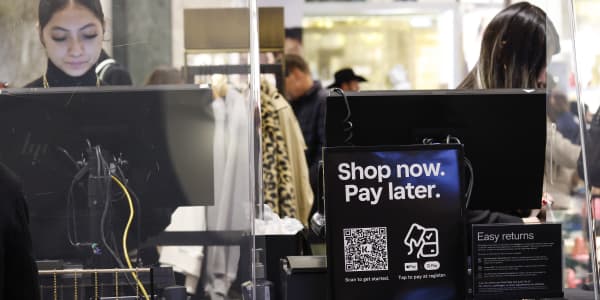Wall Streeters don't just want Valentino in their closets; private equity firm Permira Advisers wants Valentino in their portfolio. Time is ticking on the open window for Permira to purchase the 24% stake in Valentino owned by Italy's Marzotto family (of the well-known fabric manufacturing house). Permira has until May 28 before their exclusivity agreement with Valentino Fashion Group expires. Permira already acquired a 29.6% stake in Valentino last week, but reportedly has been locked in a bidding war with rival p.e. firm Carlyle.
Is there any category that private equity money can't or won't buy into these days? (With €11 billion in capital, Permira is the fifth largest buyout firm and 30% of their holdings are in the retail/consumer space.)
What's interesting to me is not just private equity's move into the luxury space or into fashion retail (far different from, say, Texas Pacific's buyout of Neiman Marcus or hedge fund manager Eddie Lampert's Sears-Kmart play, which considered the real estate holdings of those companies in their valuations), but I am impressed to see the value that p.e. is putting on a fashion brand name itself.
Permira offered to buy Valentino for $47.60 a share. That puts a €2.6 billion price tag on the luxury atelier, a fashion house subject to the zigs and zags of the fickle fashion cycle and one that has not licensed out its name to tap into the cash-generating, high-margin accessories business so popular in the "masstige" trend. What value does Permira see in Valentino?
Here's what the Valentino buyout tells me:
- America is still the "New World." European brands are hungry to expand heavily in the U.S. market. The luxury sector has so many opportunities right now that can be found, not just by moving into the emerging markets, but also by tapping into the new and growing wealth of the U.S.
Telsey Advisory founder Dana Telsey says she sees a renewed focus among European luxury brands to grow in the American market. With a private equity buyout, a company has an easier time funding expansion efforts as they are no longer answerable to shareholders. Expect to see investment in expansion in the U.S. - Selling your name may be selling yourself short. Licensing brands commoditizes them in a way that undermines the value of the name. The idea sounds self-evident enough, but with seemingly every luxury house licensing their brand for high-margin accessories in order to finance their apparel businesses, it is rare to find a brand that has not gone "down market" in some way.
Valentino is one of the few brands that has not tried to tap the mass market in a major way and yet still has made enough financially via its other business (Hugo Boss, for one) to stay afloat in the public markets. Will Permira push for licensing? It'll be interesting to see where they see value/growth. - The days of the couture fashion house are numbered. There used to be dozens of names -- from Givenchy to Rochas to Chanel to Gucci to Valentino. There are few fashion houses left afloat these days and very few that can survive without the financial backing of a public company like LVMH or a p.e. firm. In the U.S. at least, there is also a smaller pool of stores at which to sell the brands.
This is my debut in the blogosphere. I look forward to writing daily on what I'm hearing in the retail space. I'm excited to post online, as the nuggets of information that we beat reporters gather so often end up unreported, due to how crowded the broadcasts get with daily programming. I look forward to hearing from readers/viewers as well.
Questions? Comments? retaildetail@cnbc.com




